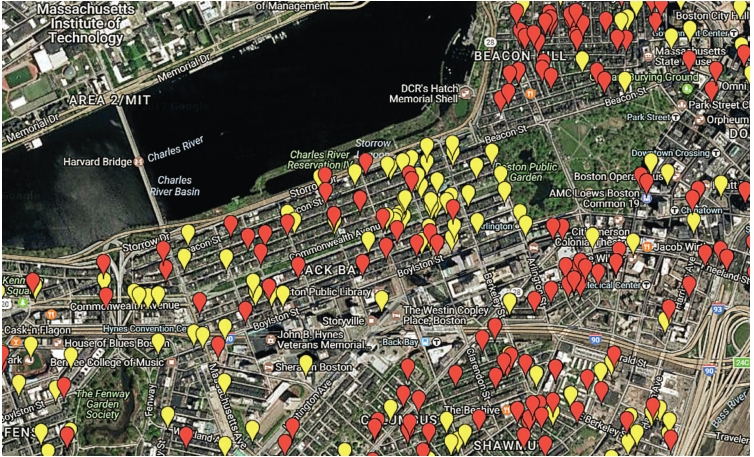
The Conservation Law
Foundation (CLF) plans to sue National Grid for past and continuing violations of both federal and state laws related to leaks in its pipeline infrastructure.
In a notice of intent to sue sent to National Grid in August, CLF alleges that the gas leaks have created conditions that damage and kill public shade trees and pose a serious threat to the public.
Margaret
Pokorny, a board member of Friends of the Public Garden (FOPG), a
non-profit organization dedicated to caring and advocating for Boston
Common, Public Garden and Commonwealth Avenue Mall, hopes that the
lawsuit will light a fire under National Grid to fix gas leaks that have
for a long time impacted the urban canopy.
Commissioning
the services of Gas Safety, a company who works to uncover gas leaks,
they found 20 leaks compromising 66 trees along both lanes of
Commonwealth Avenue around 13 years ago.
Those
leaks were reported, and the FOPG attempted to work with National Grid
to have some of the trees replaced. Pokorny said that little was done to
repair the leaks. She said they continue to see dead and dying trees
today because of the leaks.
The
FOPG keeps track of some 750 trees on the Mall, monitoring the
condition of and practicing special caretaking measures of trees
impacted by these leaks.
“We
watch them, but unless this lawsuit works, we don’t really have any
recompense. We can say to National Grid ‘we think these trees are
dying’, but they’re not obligated in any strong way to make any changes
or to fix the leaks, including removal fees, replacing a tree costs
around $3,500”, Pokorny said.
While
the priority of CFL’s incoming suit, to be filed in November, is to
ensure that National grid deals with and maintains the most dangerous
leaks, their larger effort is to force the company to transition from
natural gas altogether, says Heather Govern, vice president of CLF’s
clean air and water program.
“What
we’re looking for is National Grid to transition from natural gas and
become a utility that provides heating and cooling via more sustainable
energy sources. Say like, heat pumps, both ground source heat pumps or
air source heat pumps, which are just so much safer and better for the
environment,” said Govern.
CLF
investigators found over 200 public shade trees either dead or dying
from methane poisoning, in addition to 15 gas leaks considered
“explosive level”.
In
the notice, CLF outlines over 1,400 instances of National Grid failing
to repair gas leaks in a timely manner and 600 leaks were leaking at the
time the letter was sent. It also references multiple instances of
leaks posing a danger to the public, such as deadly gas-related fires
and manhole cover explosions.
“National
Grid has been dealing with a crumbling infrastructure system for
decades. I believe they thought that putting band aids on these leaking
gas pipelines was their best solution, maybe even 60, 50 years ago,”
said Govern. “There was not such a push from the public or the
government back then to find a better, cleaner renewable energy to bring
to customers.”
Newer
trees are particularly susceptible to the gas, according to Claire
Corcoran, who works in urban forestry consulting and is involved in both
FOPG and Mothers out Front, one of the plaintiffs in the suit.
“What
this looks like in the community, is, certain locations in my
neighborhood the city has replaced the tree there about every 2-3 years,
and the trees never really get established. They die.”
In a statement to The Boston Guardian, National
Grid spokesperson Bob Kievra said that their proactive maintenance and
safety programs exceed state and federal requirements, illustrating the
company’s dedication to serving and protecting their customers,
employees and the environment.
“National Grid shares CLF’s commitment to health and safety,” said Kievra.